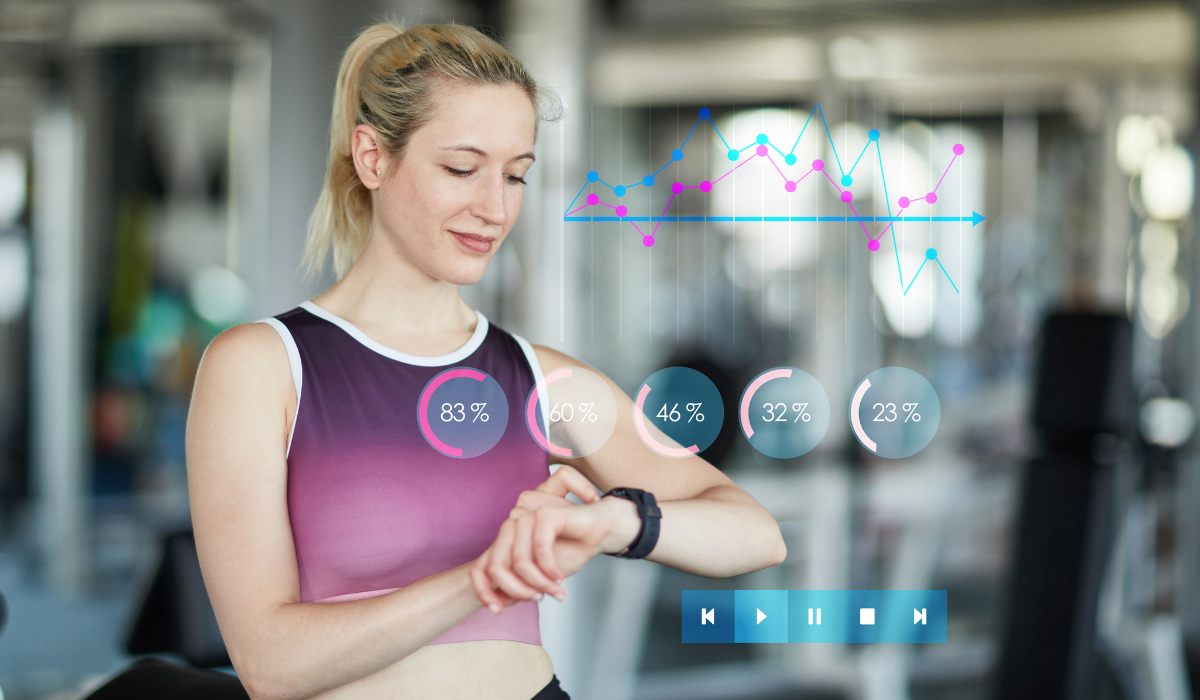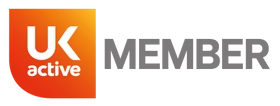Artificial intelligence is making waves across every industry, and the world of personal training is no exception. From smart mirrors offering real-time feedback to AI-driven apps designing personalised workout plans, technology is reshaping how fitness is delivered.
But while AI is transforming the industry, it isn’t here to replace personal trainers , it’s here to enhance the way they work. In fact, the future of personal training will be defined by those who embrace innovation while continuing to lead with empathy, motivation and human connection.
Let’s explore what AI is bringing to the table and why human skills are still at the heart of great coaching.
What Role Is AI Playing in the Fitness Industry?
In short — a significant one.
AI is popping up everywhere , from apps that track your client’s sleep and stress levels, to algorithms that create custom workout plans faster than you can say "burpee." Platforms like Freeletics and Future use machine learning to generate custom workouts based on a client’s ability, goals and feedback. Some even offer real-time form correction using video or sensor input.
Wearable tech has also evolved dramatically. Devices such as WHOOP and Fitbit gather and interpret vast amounts of data, from heart rate variability to daily strain and readiness, giving both clients and coaches a much deeper understanding of physical performance.
The global AI in fitness market? It's predicted to grow over 37% annually through 2030. That's not just a trend. That’s a tidal wave — it's a transformative shift. (Source)
Should Personal Trainers Be Concerned?
Not at all. While change can be challenging, this evolution presents an opportunity.
AI should be viewed as a valuable tool, not a threat. Think of it as a highly efficient assistant — handling the heavy lifting behind the scenes, so you can focus on delivering meaningful coaching.
Here are a few areas where AI is already proving its value:
-
Admin automation – Scheduling sessions, sending reminders and tracking habits can now be automated, saving time and reducing workload.
-
Personalised programming – AI-driven tools create data-informed training plans tailored to each client’s metrics and progress.
-
Form analysis – Some platforms now offer mid-session technique feedback, helping clients move better and stay injury-free.
-
Round-the-clock support – AI doesn’t sleep , complain or forget things… AI tools provide guidance and reminders 24/7, improving client engagement outside of sessions.
But while AI can do many things well, there are still essential human qualities it can’t replicate. It still can’t do what YOU do best.
Why Human Skills Still Matter
As any experienced personal trainer knows, fitness is about more than just sets and reps. It’s about relationships, trust and communication. You become your clients hype squad, therapist, nutritionist, life coach. No algorithm can replicate that .
Here’s where human coaches continue to provide irreplaceable value:
-
Emotional intelligence – A good trainer can pick up on how a client feels and adjust accordingly, offering encouragement, support or simply a listening ear.
-
Adaptability – Whether a client is feeling off, stressed or needs a change of pace, a trainer can modify a session in real time.
-
Accountability – A push notification can be ignored. A waiting coach rarely is.
-
Inspiration and belief – Good Personal trainers help clients believe in themselves and stay committed — something no app can truly replicate.
Recognising this, organisations like the American Council on Exercise (ACE) have launched initiatives such as the AI Bootcamp, aimed at helping fitness professionals integrate technology while maintaining their human-centred approach.
How Trainers Can Embrace AI Without Losing Their Personal Touch
This is a great question !
AI doesn’t need to be intimidating. When used thoughtfully, it can actually help personal trainers offer more tailored, efficient and impactful coaching.
Here’s how to integrate AI effectively:
-
Use data insights – Wearables and apps can reveal valuable information about a client’s recovery, readiness and progress. This data helps inform programming and decision-making by giving you the insights that used to require guesswork .
-
Automate routine tasks – Let AI handle time-consuming admin like scheduling, invoicing and tracking progress, so you can focus more on coaching. Automate scheduling, payment reminders, check-ins, and progress tracking.
-
Streamline program design – Platforms like Trainerize and TrueCoach offer AI-powered support for creating workouts that align with a client’s needs and goals. It’s like having a co-pilot.
-
Prioritise human connection – Even if technology handles some communication, your authentic support and feedback will always carry more weight. You need to keep the empathy and support flowing, that’s the glue to a good client – coach relationship.
Is This Only Relevant for Online Coaches?
Not at all. Whether you train clients virtually, in a gym or outdoors, AI has a place in your toolkit.
Picture this:
-
Your client walks in.
-
A wearable device flags poor sleep and low recovery.
-
You pivot the session to focus on mobility and active recovery.
-
Your client feels heard, understood and supported.
That’s the power of combining technology with a personal touch . AI just give you more tools to be even better at your job.
Your Greatest Strength? Soft Skills
As AI becomes more capable, your most important assets become the qualities that make you uniquely human:
-
Empathy
-
Communication
-
Motivation
-
Problem-solving
-
Relationship-building
These aren’t just nice-to-haves — they’re your competitive edge. In fact, as tech gets more advanced, these human qualities become more essential, not less.
Like this Forbes article points out, clients may use AI-driven tools for workouts, but they still need real humans for encouragement, problem-solving, and that all-important push when they’d rather nap than squat.
What’s the Future of Personal Training?
The trainers who thrive in the future will be those who leverage AI as a tool — not a replacement. By embracing innovation while maintaining authenticity, personal trainers can deliver smarter, more responsive, and more personalised coaching.
Let technology take care of the logistics . You take care of the people.
Because no algorithm can offer a well-timed high-five, adapt to a mood mid-session or help someone believe they can achieve more than they thought possible.
Key Takeaways
-
AI is changing personal training rapidly , offering new tools for data tracking, automation and program design.
-
It’s a supplement, not a substitute — human coaches still offer the empathy, accountability and motivation clients need.
-
Soft skills are more important than ever — they’re what set trainers apart in an increasingly digital world.
-
The future is AI + humans — combining the best of to improve client outcomes.
By embracing technology without losing what makes coaching personal, personal trainers can continue doing what they do best: helping people live healthier, stronger, more confident lives.
Further Reading:







